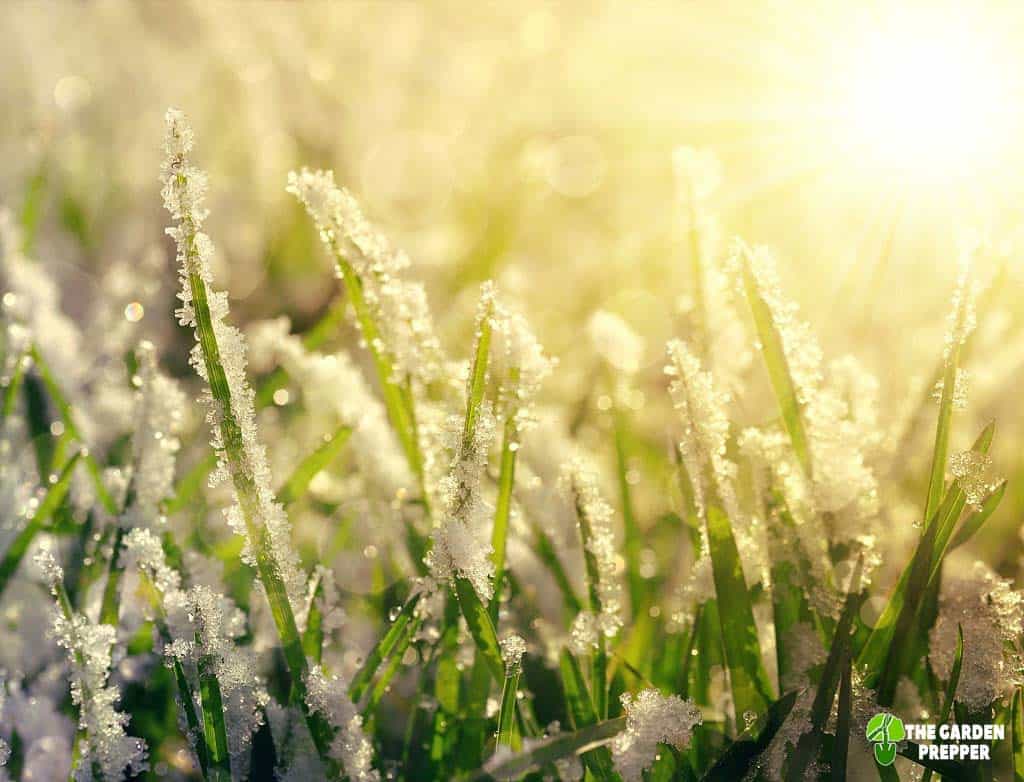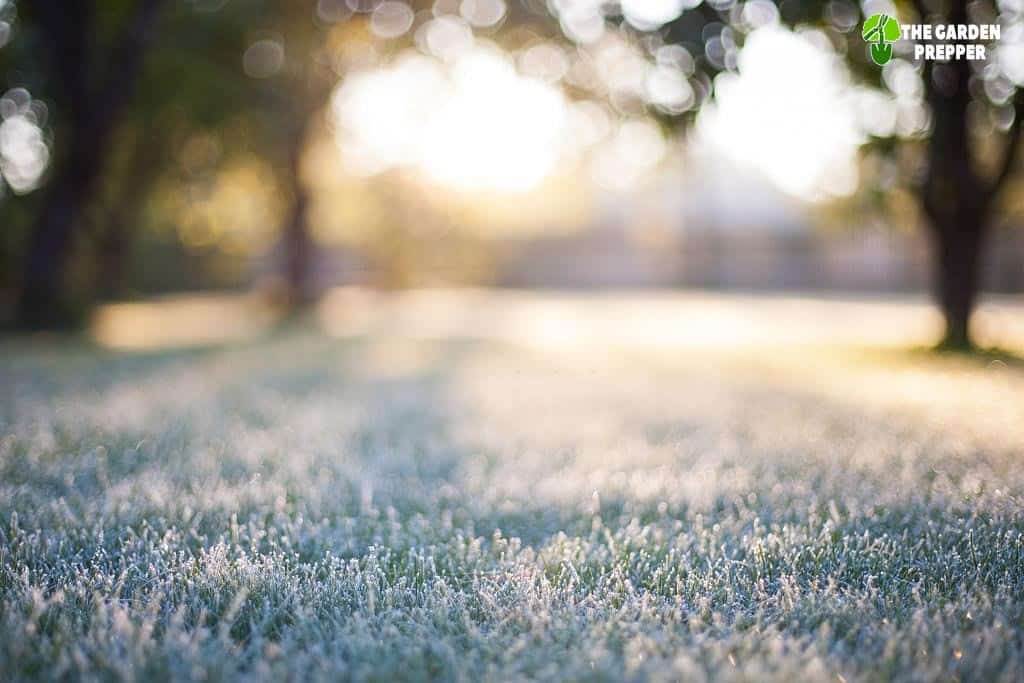If you are planning to plant grass, there are actually a lot of things to take into account for. Growing grass isn’t as simple as you’d expect it to be. Just like most, if not all, types of plants, they have a preferred temperature range, along with other requirements to meet for them to grow amazingly.
One of the things you should consider is when to plant grass seed, which is an important element to get that healthy and full-looking lawn. You’re probably wondering, ‘can I plant grass seed if it freezes at night?’ If your temperatures at night start to dip, this is a cause of concern and it may leave you confused as to whether or not grass seed can still thrive.
Read on to find out!

Can I Plant Grass Seed If It Freezes at Night?
You may have wanted to get a head start on your beautiful spring lawn by seeding grass. If you did this, you may notice that you didn’t get the lush and dense turf you were expecting.
This is because grass seedlings would have more chances of failure if they were spread too early in the year. In fact, young grass seedlings are vulnerable to cold weather, as they haven’t developed deep roots yet. Hard frost would end up freezing the soil’s upper layer, preventing seedlings from getting enough water and nutrients.
As a result, your new grass ends up getting killed.
Let’s look at this general rule of thumb for grass seedlings:
If your location’s daytime temperature is below 60 degrees F, then the soil temperature would be below 50 degrees F. This is TOO cold for your grass, especially if you expect a frost, which can result in your grass seedlings rotting.
The same goes for planting grass seedlings when you know that it freezes at night. No matter the time, the freezing temperatures would have negligible effects on grass seeds before germination. More problems may occur when temperatures would drop further below freezing points before the newly emerged seedlings have had chances to develop well.

How about the seed?
That said, grass seed is temperature resistant. If grasses would be seeding during the fall, the seeds would become dormant in soil all winter long, sprouting during spring. The frost would usually not kill seeds, but only lull them to some form of hibernation.
But when does grass die from the cold?
It would happen when the frost isn’t consistent and soil would go through various freeze/thaw cycles. This is because the moisture from the melting frost would collect around grass seeds, attracting mold and rot, eventually killing your seeds. While one single and solid frost all winter long won’t kill seeds, the irregular cycle of freeze and thaws would.
This is why hot days and freezing nights can end up killing off your grass seed, which is why it isn’t recommended.
This is why laying grass seed is quite a delicate process, needing the right time for better chances of success. If done wrongly, then expect your grass to not properly germinate or stay dormant until the growing season arrives.
Read more: How to Keep Grass Green and Achieve a Healthy Lawn
When to Plant Grass Seed
While grass seed isn’t as affected by freezing temperatures compared to seedlings, it’s still best to plant grass seed at the correct times for better growth.
The times to plant grass seed would depend on the grass variety and location.
For those who have warm-season grass and are from the southern and southwestern parts of the United States, then sow grass seeds when the air temperatures come at night are just a bit above 65 degrees F during springtime.
For those with cool-season grass, it’s better to plant during the fall season or even in spring, provided that you use correct products to fight off the weed pressure. As for temperatures, it should be above 50 degrees F but nothing higher than 65 degrees F.

What You Should Do
What if you have inconsistent frosts that risk your seedling growth? There are ways to have your grass thrive despite the freezing temperatures:
- While it might seem counterintuitive, try watering your lawn before the frost, which helps your soil resist freezing. The water in the soil would retain heat, making it less likely for the ground to freeze. Try watering your lawn at night so you can protect growing grass overnight.
- Cover your seed with tarps and cloth weighed down using spare lumber and stone, or even just a thin layer of black plastic tarp, which helps keep the warm air close to the ground, preventing frost from harming the growing grass. Remove the tarp during come daytime so your grass is exposed to air and light.
- Frosted grass can be killed from walking or driving across them, as the pressure would cause frozen water molecules to tear through the plant cell walls, which severely damage grass blades. Protect your new grass by avoiding anyone from walking on the lawn until it thaws.
- For grass seed, the most important thing to consider is the moisture. Seeds won’t germinate if they aren’t consistently moist for 2-3 weeks after planting them. Make sure that you moisten your seeded area twice a day for the seeds to germinate well. This is important especially for warm-season grasses, which need more water.
Wrapping It Up
When it comes to planting grass seed, there won’t be much to worry about the freezing temperatures, as they would only go in dormant mode. However, it’s still best to avoid planting it in freezing temperatures, especially when there is a constant freeze/thaw cycle. Once your grass turns into seedlings, you’ll need to follow the proper tips to avoid it from dying of frost.
Hopefully, you found insight and learned more about grass seeds and how to grow them properly. If you plan on growing grass, follow the proper steps and take into account the temperature and grass variety you own for a lush yard now!
